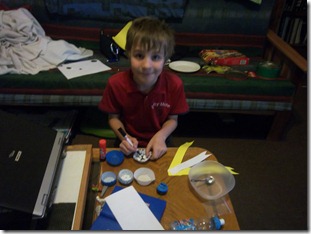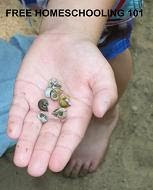By Deborah L. Woodward, BSN, AuD, CCC-A

Mother’s intuition is priceless but unfortunately not always an accurate gauge about whether a child is developing normally or not. Thankfully, there are several excellent checklists available to evaluate social interaction, speech, and hearing and physical development, regardless of your child’s age. So take a deep breath—it is emotionally difficult to look at your child this way, especially if you have some fears. Hopefully, there is nothing wrong. If there is, early intervention is highly effective. Reputable checklists, resources, and practical information, some of which are included in this article, will help you evaluate your child.
Developmentally, as an infant, it is important that a child gazes at his parents’ face and as the child gets older, smiles. The smile should not be random or primarily at objects but communicative with good eye contact. As the child develops, more eye contact, smiles, and face-to-face interaction are expected. Hearing is another early skill that is a necessary prerequisite for speech. An infant should turn toward sounds. At early ages, a slight delay in response is not unusual. As motor control matures, faster head turn response times are expected.
A big “red flag” of concern is if the child suddenly stops interacting, making eye contact, babbling, or responding to sounds. This would be an indication for immediate medical attention, because these types of symptoms may occur with untreated ear infections, as well as several other completely treatable conditions; however, please be aware that these clusters of behaviours may also be early signs of more serious issues.
Between the ages of 3 and 15 months, your child’s body is undergoing tremendous growth. An excellent website that summarizes motor and physical development is Pathways Awareness, a non-profit early identification organization (www.PathwaysAwareness.org or 800-955-2445). This website has detailed photographs or drawings, by age, which effectively illustrate signs of motor weaknesses that need further evaluation. For example, by 6 months, a physical “red flag” would be poor head control or stiff legs. By 9 months, inability to straighten back, take weight on legs, or difficulty crawling. By 12 months, concern would be raised if the child has difficulty standing because of stiff legs and pointed toes, sits with his weight to one side, or strongly flexes her stiffly extended arms. By 18–24 months of age, a young child should be able to walk up and down steps with one hand held and scribble on paper with a crayon, feed himself table foods with a spoon, and take all liquids from a cup. An excellent chart that compares a typical young child’s development with that of an atypical child (who has motor delays) may be found at the following link: Pathwaysawareness.org
Speech and language changes occur rapidly in the young child. A toddler should know the names of familiar objects or body parts and be able to point to them. Sentences should be two to four words in length. Detailed speech, language, and hearing developmental milestones through 5 years of age are well documented and readily available by brochure or on the Web from reputable sources such as the American Speech-Language-Hearing Association (www.ASHA.org or 800-638-8255) or a division of the National Institutes of Health, the National Institute of Deafness and Other Communication Disorders (www.NIDCD.NIH.gov or 800-241-1044). In general, as the child becomes older, speech should become clearer with increased understanding and word usage.
In the school-age child, typical “red flags” are concerns about the child not following instructions, poor attention, or difficulty with auditory or reading comprehension. Initially there is a sense of failure—that the parent has done something wrong to cause his or her this problem and fear that the child will be unable to learn. A homeschooling parent who has successfully educated other children may quickly understand that her child has a learning difference and have the confidence to modify classwork or try something new to help improve learning, which may or may not work.
It is important to realize that a child may not have the maturity to successfully complete the task even if the skill is “age-appropriate.” A thorough list of behaviours that are signs of good sensory integration in children is available here:
Typical Sensory Development, and a unique chart that equips you to track your child’s development can be found at this link: Pathways Chart
Sometimes a skill may be successfully taught by adding in more frequent breaks or providing a child specific sensory diet of physical activity for optimal learning. The homeschooling family is in an excellent position to modify schoolwork, breaking it into small pieces of more easily understood steps or choosing to wait until the child is physically, emotionally, or intellectually ready. If the child is not progressing or the family is overwhelmed, further professional evaluation may be needed to (hopefully) find out whether the root “disorder” is primarily related to speech, language, attention, sensory issues, auditory deficiencies, developmental issues, or some combination of those areas. At this point, accurate diagnosis is necessary in order for effective therapy, and this cannot be stressed enough. For example, hearing loss may look like an inattention problem, poor memory, or lack of comprehension, regardless of age.
The first step is an accurate assessment. Where you go will depend on your child’s age and whether you choose to look publicly or privately. Financially, it greatly behooves a concerned family to seek help before the child is 3 years of age. In the U.S., the Early Intervention Program for Infants and Toddlers With Disabilities programs are an excellent public resource, available in every state, providing free assessment and intervention if indicated. The easiest way to locate these services is to search adding your state name or contact your paediatrician and local hospital nursery social worker, since the exact name varies by state. Another option is to call (202) 245-7629 and request a local contact. Once a child is 3 years old, free and public services are provided by your local school district regardless of whether the child is in public, private, or home school. This initial evaluation will help initiate referrals to other appropriate specialists or resources as needed. Even in these economic times, services for children may be obtained through insurance, extended income Medicaid, or school insurances. Private or university therapists may offer sliding scale or reduced rate group therapy. Finally, in attempt to make the most of each professional visit, ask the therapist for a “home program” or therapy instructions for additional therapy at home, by you, to provide more intensive intervention and possibly better results.
Paediatric evaluations last about one hour, with generally a very nice therapist, because it is important that you and your child feel comfortable and willing to participate. The therapist will ask you a series of questions and observe, as well as play to interact with your child while evaluating speech, language, and fine and gross motor development. The therapist frequently takes notes during this assessment to document both normal and other findings. These notes and standardized test results are used for report writing purposes. Generally, the therapist or team of therapists will review the findings with you the same day as the evaluation, with a follow-up report with recommendations provided in writing within a few weeks. Sometimes the plan is to monitor the child in three to six months. Sometimes early intervention is recommended and scheduled.
The assessment process itself can be emotionally stressful, because now there are words, some unfamiliar and scary, to describe your child. Using professional jargon, even a description of “normal” may sound like there is something wrong. Be sure to ask for clarification. Remember, too, that the purpose of this type of assessment is to identify abnormality—and as such, necessary in order to proceed with appropriate help.
When weak areas are identified, it is common to think about the child only as “the disorder.” Sometimes the knowledge that something is wrong can cause emotional withdrawal from your child. Sometimes there is already a barrier in bonding because of the problem your child has. This is especially common with communication disorders. As a parent, you may appear calm or analytical one moment and filled with panic at the next. One or more family members (husbands included) may deny the existence of a problem, even in the case of obvious delay or illness, and tell you to stop worrying, that there is NOTHING WRONG! In the midst of this anguish and confusion, there is your child, still needing to be loved, fed, and held by you. These are the terrifying aspects of an abnormal assessment. A valuable tool for assessment may be found at this link: Pathways Awareness.org FAQs.
A common tactic, especially for the self-reliant, is the self-evaluation of a child. This path possibly avoids some financial stress or the anxiety of professional diagnosis. However, the research, therapy materials, and the real possibility of error make self-diagnosis and treatment a very time-intensive and costly venture. Having attempted this myself, I can say from experience that often the problem that you suspect is not the actual one at all. Valuable time and money, necessary for your child’s recovery, may be lost and your overall fatigue increased when the very important step of professional assessment is eliminated.
It can be difficult for someone emotionally close to the child to objectively evaluate. That said, there is no one who cares about your child as much as you and your family. The best advice to be given here is to simply love your child and try to provide help where you can. You are the only parent(s) your child has—the only one who will fulfil that most important role in his or her life. With professional guidance, it is possible to help provide effective treatment. However, if you need to participate in therapy, take care to not let the therapist role usurp your parent role.
Once therapy is initiated and as your child improves and the therapist strengthens areas of weakness, other areas of weakness may become evident. For example, a child may appear to be inattentive and angry. Evaluation may show fine motor weakness with sensory integration disorder that is causing the child difficulty with handwriting. Once the child’s fine motor skill is improved, the child may appear to pay attention better because the daily task of handwriting is easier.
One final comment regarding therapy is that it may not be possible to “fix” every weakness. My recommendation is to provide therapy, when possible, with the hope that whatever is left will be manageable enough for your child to compensate for. If compensation is not enough, then classroom and/or other academic modification may be made for the school age, middle, high school, and older student. One effective modification is extended test times, even for standardized examinations (i.e. SAT or end of grade testing).
I would like to end with a few notes of encouragement. Children respond well to therapy, and most get better as they get older, with, as well as without, therapy. This storm of worry over your child, which feels like a crisis, adds some good things to a family that are experienced only by slowing down and getting to know your child intimately. You will be forced to recognize and separate your performance expectations from the unique skill set of the child that you have the pleasure and challenge of homeschooling. For my family, when my son developed Tourette’s Syndrome, and we began to homeschool, I had a lot of difficulty changing from my arbitrary, rigid time schedule in order to minimize needless stress and tics for my wonderfully talented son . . . but that’s another story.
Deborah Woodward, BSN, AuD, CCC-A, the proud mother of homeschooled, musical son, James, enjoys life as an audiologist at Moses Cone Health System in Greensboro, North Carolina, and participates in church, Revolutionary War re-enactments, and tending chickens with her husband, Jeff. She is developing a helpful website Tools4Hearing.
References:
1. www.ASHA.org
2. Early Intervention—Infant Toddler Program, www2.ed.gov, (202) 245-7629 (telephone)
3. Family Support Network of Illinois, www.FamilySupportNetwork.org
4. www.NIDCD.NIH.gov
5. http://www.pathwaysawareness.org
Copyright, 2011. Used with permission. All rights reserved by author. Originally appeared in The Old Schoolhouse® Magazine, Summer 2011.
Visit The Old Schoolhouse® at www.TheHomeschoolMagazine.com to view a full-length sample copy of the magazine especially for homeschoolers. Click the graphic of the moving computer monitor on the left. Email the Publisher at Publisher@TheHomeschoolMagazine.com

 I still have vivid memories of Maths going wrong for me during my school days. I had an ex-university lecturer for Maths in Standard 8, but although she knew the material she had no clue how to teach… Within the first term of that year my Maths dropped from the high 80% to below 70% on higher grade. Eventually I dropped down to standard grade but it wasn’t going to stop there. By the time I got to Matric my Maths had dropped down to lower 60% although I achieved around 80% for Algebra. I barely passed Geometry & Trigonometry with my ability to memorize the formulas, but unfortunately I just never “got” the Geometry & Trigonometry. I wasn’t able to apply the formulas I had learnt. Had it not been for my high Algebra results, I would have probably failed Maths altogether. I felt so stupid because my brother “got” it and achieved high results when I asked him to help during holidays, I just couldn’t “get” it.
I still have vivid memories of Maths going wrong for me during my school days. I had an ex-university lecturer for Maths in Standard 8, but although she knew the material she had no clue how to teach… Within the first term of that year my Maths dropped from the high 80% to below 70% on higher grade. Eventually I dropped down to standard grade but it wasn’t going to stop there. By the time I got to Matric my Maths had dropped down to lower 60% although I achieved around 80% for Algebra. I barely passed Geometry & Trigonometry with my ability to memorize the formulas, but unfortunately I just never “got” the Geometry & Trigonometry. I wasn’t able to apply the formulas I had learnt. Had it not been for my high Algebra results, I would have probably failed Maths altogether. I felt so stupid because my brother “got” it and achieved high results when I asked him to help during holidays, I just couldn’t “get” it.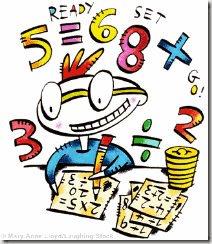 This was one of the main reasons why it took me 3 years to give in to hubby’s requests to home educate our boys when we first noticed Misha had problems at school. I was afraid of having to teach Maths, after all my eldest was supposed to start High School this year. After all, how was I supposed to teach our boys Maths if I couldn’t remember much of it myself.
This was one of the main reasons why it took me 3 years to give in to hubby’s requests to home educate our boys when we first noticed Misha had problems at school. I was afraid of having to teach Maths, after all my eldest was supposed to start High School this year. After all, how was I supposed to teach our boys Maths if I couldn’t remember much of it myself. We started him up with Le-Amen in August last year when we discovered his struggling at school was caused by serious foundational issues. By then he was in Grade 2 & still not able to read. He hated school & homework time was terribly frustrating for both of us. Unfortunately at the time I knew nothing about learning styles & took the “school at home” approach which was met with great resistance. For this year they supplied Classroom Mathematics ~ Grade 3 for him. Because he hates workbooks the 10 activities would take anything from 40 minutes to 2 hours to complete and if it weren’t for the overall improvement in other areas, I’m sure I may have stuck him back in school by now had I not stumbled across the Custom Homeschool Curriculum ~ Teach How Your Child Learns page on the internet.
We started him up with Le-Amen in August last year when we discovered his struggling at school was caused by serious foundational issues. By then he was in Grade 2 & still not able to read. He hated school & homework time was terribly frustrating for both of us. Unfortunately at the time I knew nothing about learning styles & took the “school at home” approach which was met with great resistance. For this year they supplied Classroom Mathematics ~ Grade 3 for him. Because he hates workbooks the 10 activities would take anything from 40 minutes to 2 hours to complete and if it weren’t for the overall improvement in other areas, I’m sure I may have stuck him back in school by now had I not stumbled across the Custom Homeschool Curriculum ~ Teach How Your Child Learns page on the internet.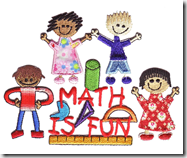 the lack of self-confidence caused by his struggles through school by finding ways to teach the material the way he learns. I resorted to asking him the Maths questions whilst he was jumping on the trampoline and then writing down his answers. I was amazed that he actually could do the Maths. When allowed to do the worksheets verbally, he would often give the correct answer, but then write down a wrong answer. I later learnt that was a result of midline crossing inability. Hence I decided to replace the worksheets with online & downloadable Maths games & set out to make Maths more fun.
the lack of self-confidence caused by his struggles through school by finding ways to teach the material the way he learns. I resorted to asking him the Maths questions whilst he was jumping on the trampoline and then writing down his answers. I was amazed that he actually could do the Maths. When allowed to do the worksheets verbally, he would often give the correct answer, but then write down a wrong answer. I later learnt that was a result of midline crossing inability. Hence I decided to replace the worksheets with online & downloadable Maths games & set out to make Maths more fun. In my searches to find material to help him through school I stumbled across learning styles & brain dominance. I recently read the book “In Their Own Way ~ discovering and encouraging your child's multiple intelligences” by Thomas Armstrong. It has helped me understand how my sons learn. I am currently reading "The Fine Line between ADHD and Kinaesthetic Learners". Leave a comment at this link if you would like to receive a FREE introduction. Finally I understood why I had a struggling learner on my hands. I discovered he is a strong Body-kinaesthetic (Body Smart / using the whole body & hands) and Visual Spatial (Picture Smart / ability to visualise pictures in one’s head or to create them in some two- or three dimensional form) learner. The classroom environment just didn’t work for him because they teach mainly for
In my searches to find material to help him through school I stumbled across learning styles & brain dominance. I recently read the book “In Their Own Way ~ discovering and encouraging your child's multiple intelligences” by Thomas Armstrong. It has helped me understand how my sons learn. I am currently reading "The Fine Line between ADHD and Kinaesthetic Learners". Leave a comment at this link if you would like to receive a FREE introduction. Finally I understood why I had a struggling learner on my hands. I discovered he is a strong Body-kinaesthetic (Body Smart / using the whole body & hands) and Visual Spatial (Picture Smart / ability to visualise pictures in one’s head or to create them in some two- or three dimensional form) learner. The classroom environment just didn’t work for him because they teach mainly for  children who are Linguistic (Word Smart / ability to use words effectively) and Logical-Mathematical (Number Smart / capacity to work well with numbers and / or be adept at logic or reasoning). I am learning so much and it seems I may have a Kinaesthetic Right Brain Learner on my hands. In order to learn effectively, Misha needed to be able to move a lot. He also needed many pictures and lots of colour to re-enforce his learning and of course PC activities seem to work like a charm.
children who are Linguistic (Word Smart / ability to use words effectively) and Logical-Mathematical (Number Smart / capacity to work well with numbers and / or be adept at logic or reasoning). I am learning so much and it seems I may have a Kinaesthetic Right Brain Learner on my hands. In order to learn effectively, Misha needed to be able to move a lot. He also needed many pictures and lots of colour to re-enforce his learning and of course PC activities seem to work like a charm. In April I stumbled across the Teaching Textbooks website. I decided to give this a try because Misha loves playing PC games. The results were astounding. I found that he was suddenly able easily finish 2 lessons, containing 5 sample problems and 24 problems per lesson in 20-30 minutes whereas he couldn’t complete a 10 question worksheet in less than 1 hour before. Teaching Textbooks comes with a workbook as well as CDs to teach the concepts. After watching the lesson on the CD, the student can choose to complete the activities on the PC (with auto-grading up to 7th Grade) or fill out the worksheets in the workbook. All concepts taught are constantly tested in future worksheets thus ensuring mastery of concepts. However, after six months working on it daily, he’s now bored with it as it’s not colourful & doesn’t have enough variety in animations for him.
In April I stumbled across the Teaching Textbooks website. I decided to give this a try because Misha loves playing PC games. The results were astounding. I found that he was suddenly able easily finish 2 lessons, containing 5 sample problems and 24 problems per lesson in 20-30 minutes whereas he couldn’t complete a 10 question worksheet in less than 1 hour before. Teaching Textbooks comes with a workbook as well as CDs to teach the concepts. After watching the lesson on the CD, the student can choose to complete the activities on the PC (with auto-grading up to 7th Grade) or fill out the worksheets in the workbook. All concepts taught are constantly tested in future worksheets thus ensuring mastery of concepts. However, after six months working on it daily, he’s now bored with it as it’s not colourful & doesn’t have enough variety in animations for him.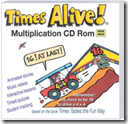 I’m currently looking at adding the Times Alive CD rom from City Creek Press to help
I’m currently looking at adding the Times Alive CD rom from City Creek Press to help  him memorise the times tables. The software is also available as a download.
him memorise the times tables. The software is also available as a download.  Honestly, I still dread the High School Maths though. Jesse was using the Classroom Mathematics ~ Grade 8 textbook this year and unfortunately it was all Greek to me. I have no idea how to help him, but fortunately thus far he’s coped fine on his own & the few times he did get stuck, daddy was able to help out. He will be doing Alpha Omega Academy from next year. This will give him will have access to online Tutors as well as online classes. I’ve decided to get him Teaching Textbooks to assist with the Maths just in case he needs some additional assistance & I might
Honestly, I still dread the High School Maths though. Jesse was using the Classroom Mathematics ~ Grade 8 textbook this year and unfortunately it was all Greek to me. I have no idea how to help him, but fortunately thus far he’s coped fine on his own & the few times he did get stuck, daddy was able to help out. He will be doing Alpha Omega Academy from next year. This will give him will have access to online Tutors as well as online classes. I’ve decided to get him Teaching Textbooks to assist with the Maths just in case he needs some additional assistance & I might even use them to brush up on my own Maths skills so I can help Misha when he gets to high school.
even use them to brush up on my own Maths skills so I can help Misha when he gets to high school. Timez Attack has revolutionized multiplication games. It’s as polished as a high-end real video game, yet as effective as a top math tutor one-on-one. The built-in assessment, adaptation, and post-test research data guarantee total mastery. FREE Basic Version teaches multiplication facts 2 – 12 and paid version has additional themes & features.
Timez Attack has revolutionized multiplication games. It’s as polished as a high-end real video game, yet as effective as a top math tutor one-on-one. The built-in assessment, adaptation, and post-test research data guarantee total mastery. FREE Basic Version teaches multiplication facts 2 – 12 and paid version has additional themes & features. I have received a few submissions for this carnival and was glad to see that I am not alone in my quest to find ways to teach Maths although I myself was not so good at it in my days. These pages cover teaching young ones with manipulatives, free recourses for Middle & Senior students, as well as encouragement for teaching High School Maths.
I have received a few submissions for this carnival and was glad to see that I am not alone in my quest to find ways to teach Maths although I myself was not so good at it in my days. These pages cover teaching young ones with manipulatives, free recourses for Middle & Senior students, as well as encouragement for teaching High School Maths.
 from personal experience, she believes Maths is so much easier and much more fun, when one understands the decimal system. Thankfully, the Lord sent Steve Demme from Maths-U-See over their homeschooling path. He reminds her in so many ways of her Middle School Maths Teacher - his countenance lights up when he starts teaching maths and his whole curriculum evolves around the decimal system and place values.
from personal experience, she believes Maths is so much easier and much more fun, when one understands the decimal system. Thankfully, the Lord sent Steve Demme from Maths-U-See over their homeschooling path. He reminds her in so many ways of her Middle School Maths Teacher - his countenance lights up when he starts teaching maths and his whole curriculum evolves around the decimal system and place values. 



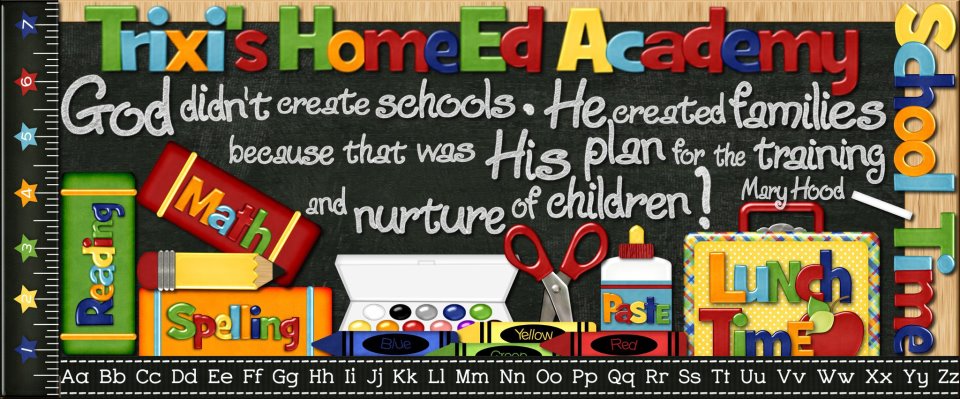
























![kindle-for-pc-tcg._V151201458_[5] kindle-for-pc-tcg._V151201458_[5]](http://lh4.ggpht.com/-RfqgJ8MUmyw/TsP8sQjbwnI/AAAAAAAAldo/bUjGRGKp2_Q/kindle-for-pc-tcg._V151201458_%25255B5%25255D%25255B3%25255D.jpg?imgmax=800)
